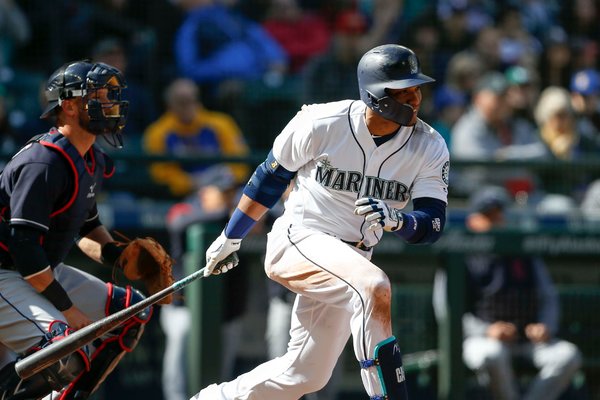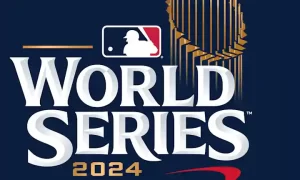Robinson Cano’s Suspension Exposes MLB’s Lack of Control

Robinson Cano‘s 80-game PED suspension that was handed down by Major League Baseball on Tuesday is just the next step for Major League Baseball in what seems to be a regular cycle. The suspension has led some to question whether Cano will make the Hall of Fame, given this new shroud of suspicion over his entire playing career. But because of MLB’s continued lack of control with respect to performance-enhancing drugs, fans have been desensitized to this form of cheating and appear likely to forgive and move on. What once was an atrocity against America is now more of a bad taste in your mouth. Baseball’s rules aren’t harsh enough; they have never been, really, so players continue to cheat, fans continue to forgive, and the cycle repeats anew each year.
For the past few seasons, executives and fans alike have been adamant about changes needed to make the game more appealing. Rule changes were made to speed up the game and America’s ballparks are now littered with basketball-style clocks. Regardless, pace of play is still roughly the same. Recent columns from well-respected writers citing Hall of Fame baseballers are floating even more dramatic ideas.
The same idea applies to baseball’s drug war: dramatic policies are needed to produce tangible results. Consider: In 2016, Mets closer Jenrry Mejia was banned permanently. In 2017, Pirates outfielder Starling Marte was suspended for 80 games, and now Cano has been given the same punishment in 2018. While 80 games on the bench (sans salary) is a hefty punishment compared to the null case, it is hardly the most forbidding reaction available. To fully understand baseball’s systemic struggle with steroids, it’s important to remember some history that most baseball fans either do not know, don’t care to remember, or simply have forgotten.
1991 – The Vincent Memo
Then Commissioner of Baseball Fay Vincent was known for being extremely tough on unions and lockouts. Vincent even banned George Steinbrenner at one point. But, in 1991, three seasons after Jose Canseco became baseball’s first 40 homer/40 steal man, it was glaring that steroids were being used frequently.
So, Vincent sent a memo to each team, saying that steroids were now banned from baseball. You can applaud Vincent if you want, but he did not implement a testing system. The memo was seen more as a slap on the wrist than an attempt to make baseball cleaner.
2001 – First Random Drug Test Program
Three seasons after Mark McGwire had snapped Roger Maris‘ single-season home record, MLB implemented its first random drug test program.
However, the program had two flaws: it only applied to minor leaguers, and excluded any player on a 40-man roster. A step in the right direction, but it would have taken up to 20 years before the grandfathered-in players would be out of the game.
2004 – Major Leaguers Now Being Tested
Thirteen years after the initial Vincent memo, a major league player was tested for steroids. Under the 2004 system, a first offense required counseling, and the player’s name would not be released. Starting in 2005, a first offense included a ten-day suspension, and the player’s name would be released.
2005 – Canseco Publishes Juiced
Canseco’s book Juiced proved to be very controversial because he revealed that McGwire used steroids during the peak of his career. Canseco stated that he helped McGwire inject the steroids on numerous occasions. Even with such first-hand alegations, McGwire would not publicly admit his steroid use until 2010.
2007 – The Mitchell Report
Former U.S. Senator George J. Mitchell presents his 311-page investigation into steroid use in baseball. He uncovered 89 names, including Barry Bonds, Roger Clemens, and Andy Pettitte.
As a result, baseball adopted the following policies:
- First offense: 50 games
- Second offense: 100 games
- Third offense: lifetime ban
These incrementally stringent policies established Major League Baseball’s stance on steroids. The policies made PEDs socially acceptable, numbing the fans into complacency.
Even today’s steroid policy is flawed. Cano tested positive for furosemide in the offseason, and immediately appealed. According to the rules, he could not be suspended until the league could prove that he used the drug as a masking agent. Ultimately, they did so, but Cano was able to play while under investigation.
Compare Cano’s situation with Blue Jays’ closer Roberto Osuna, who was put on paid administrative leave after being charged with assault. This crime is non-justifiable, but so is cheating in the context of sports. In fact, the league is keeping Osuna off the field for an incident that has no on-field impact. Cano’s situation directly impacts his on-field performance, yet he was allowed be on the field for the first six weeks of the 2018 season.
A PED suspension puts a heavy shroud over anybody involved. After Cano’s suspension was announced, Astros pitcher Justin Verlander expressed his distaste via Twitter.
Aaaand excuse coming in 3….. 2…… 1……
— Justin Verlander (@JustinVerlander) May 15, 2018
Cano is 16-56 (.286) with 3 doubles and a home run against Verlander in his career.
Since fans have become desensitized to PED suspensions, Cano will be forgiven by this summer’s All-Star Game. Based on this desensitization, I personally believe that Cano still has a serious chance to get into the Hall of Fame. Not that I want him to, but I’m saying there’s a chance. If baseball were serious about getting rid of steroids, they could make the penalty for even being suspected of using so harsh that players would be deterred.
The counter argument to outing suspected users is that mistakes happen. Defaming an innocent person is not the goal here. Rather, the public has a right to know within some time (say a week) that a player is being investigated. The game would be wise to have more transparency, to harshen the rules, and finally remove the shroud of drugs from itself so that it can focus on the next wave of challenges (like the pace of play, and the lack of balls in play).
-Mike Milius
















